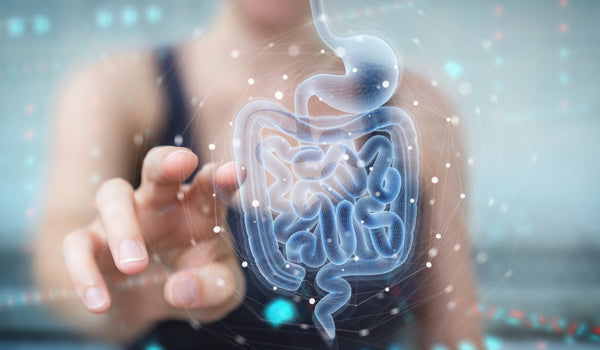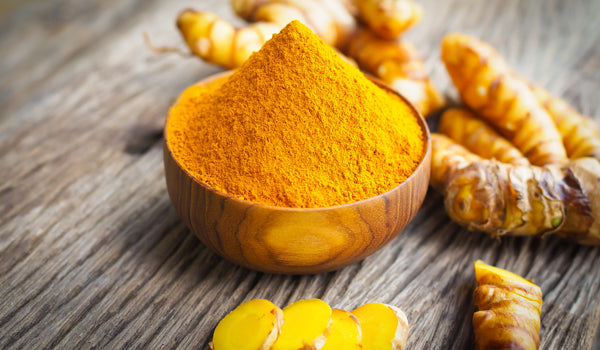A deep-dive into "gut health", and how to improve it
Published on 17 Apr 2021

Where does the food we eat go, and what happens to it? How does our body break it down, derive nutrients from it, store energy, and get rid of what it doesn’t need? It all comes down to the “gut”, or more accurately, the gastrointestinal system.
The gut is responsible for keeping our bodies running the way they should. Whether it has to do with skin health and hair, hormonal health, or even how we feel on the day-to-day - energetic, tired or mentally stressed, the gut plays a vital role. Since about 70 per cent of the immune system is housed in the gastrointestinal system, a healthy gut goes a long way in keeping us feeling good overall.
What is the gut, and how are bacteria involved?
When we use the term gut health, we’re actually referring to the gut microbiota, which includes the microorganisms that thrive in our digestive systems. Every person has about 300-500 different species of bacteria in their digestive tract - some of which are harmful, while others are essential. It’s this intricate balance of healthy bacteria that helps us ward off infections and viruses.
The gut also tells our brains when something is wrong.
Every single symptom of indigestion you’ve ever experienced is your gut communicating with your brain that something needs attention. Here are signs that something is awry in your gastrointestinal system:
- Discomfort: This includes gas, bloating, constipation, diarrhoea, or stomach pain, all of which could symptomize IBS (Irritable Bowel Syndrome) if occurring frequently. IBS is a condition that could be a sign of unhealthy gut bacteria.
- Sugar cravings: A high sugar diet depletes healthy gut bacteria, which in turn makes you crave sugar more. If you find yourself reaching for processed sugars and products with high-fructose corn syrup often, you might want to take a pause and listen to your gut!
- Fatigue: Tired all the time? It could be because your gut microbiota aren’t doing their jobs properly. Studies tell us that a large percentage of people with chronic fatigue had disturbances in their gut bacteria and IBS. This could be because a majority of the hormone serotonin, which affects mood and sleep, is produced in the gut. How energetic we feel is directly related to how much energy we’re able to derive from the food we eat. So next time you’re feeling a little low, look to your tummy for answers.
- Weight fluctuation: If your weight is going up or down without you making any major changes to your diet or exercise regime, it could be a sign that your gut is malfunctioning. An unhealthy gut could stop your body from absorbing valuable nutrients, leading to overeating, or insulin resistance.
- Skin issues: We’ve always known that good skin is linked intricately to the diet, while unhealthy diets can cause conditions like acne and eczema. Inflammation in the gut can cause the “leaking” of valuable proteins into the body, irritating the skin in multiple ways
- Food intolerances: Perhaps the most obvious symptom of a bad gut is a gut that can’t seem to digest certain foods it used to. Trigger foods could be oily foods, spicy foods, certain kinds of fats or meats, or simply a stomach that seems very sensitive to food that isn’t home-cooked.
What can I do for my gut?
We’ve established that the gut is a complex system comprised of bacteria and immune cells all working in a delicate balance to keep our bodies healthy. However, keeping our guts healthy doesn’t have to be complicated at all. Let’s breakdown a few simple ways you can make sure your gut is in great shape.
- Saying no to stress: Stress is hard on your whole body, especially the gut. Trying to stay relaxed with regular exercise, meditation, and doing things that make you happy is a good way to make your gut happy too.
- Sleeping enough: Make sure you get 7-8 hours of sleep per night. A lack of sleep starts a vicious cycle where it worsens your gut health, which can, in turn, contribute to stress and further sleep issues.
- Drink lots of water: The mucosal lining of your intestines, as well as the healthy bacteria in your gut, depends on healthy water intake.
- Fix your diet: Avoid foods rich in sugar and processed fats, and try to choose more lean proteins, plant-based foods, whole grains and foods rich in fiber.
- Find supplements that have probiotics, or contribute to gut health. While some kinds of curds or fermented foods are naturally rich in probiotics, it’s hard to include them in our diets on a regular basis.
Nature has given us superfoods in the form of medicinal ingredients that can bolster, strengthen and nourish the entire gastrointestinal system. One such natural gift is ginger. Pureveda’s Activ Digest harnesses the full spectrum of what ginger has to offer to holistically improve your gastrointestinal health.
The gastrointestinal system plays a huge part in our sense of well-being. So next time, don’t ignore that “gut feeling” - and pay attention to your gut health!
To know more about Activ Digest, visit this page.





